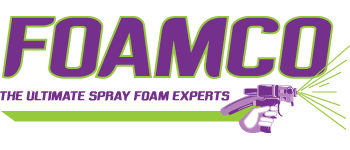Does Spray Foam Insulation Mold
One of the concerns that homeowners have when considering spray foam insulation is whether or not it can develop mold. While spray foam insulation itself does not mold, there are some situations where mold growth can occur if the insulation is not installed properly or if there are other moisture-related issues in the home.
The key to preventing mold growth in spray foam insulation is to ensure that it is installed correctly and that there are no areas where moisture can accumulate. If the insulation is not installed properly and there are gaps or voids, moisture can seep in and create the ideal conditions for mold growth.
It's also important to address any moisture-related issues in the home, such as leaks or high humidity levels. If there is excess moisture in the home, it can create the perfect environment for mold to grow, even if the insulation is properly installed.
If you do notice signs of mold growth in your home, such as a musty odor or visible mold growth, it's important to address the issue promptly. Mold can cause health problems, especially for those with allergies or respiratory issues.
To prevent mold growth in your home, be sure to choose a reputable insulation contractor with experience installing spray foam insulation. They can ensure that the insulation is properly installed and that there are no areas where moisture can accumulate. It's also important to address any moisture-related issues in the home, such as leaks or high humidity levels.
Spray foam insulation does not mold, but it can create conditions for mold growth if it is not installed properly or if there are other moisture-related issues in the home. With proper installation and maintenance, spray foam insulation can provide many benefits for your home, including improved energy efficiency and comfort.
